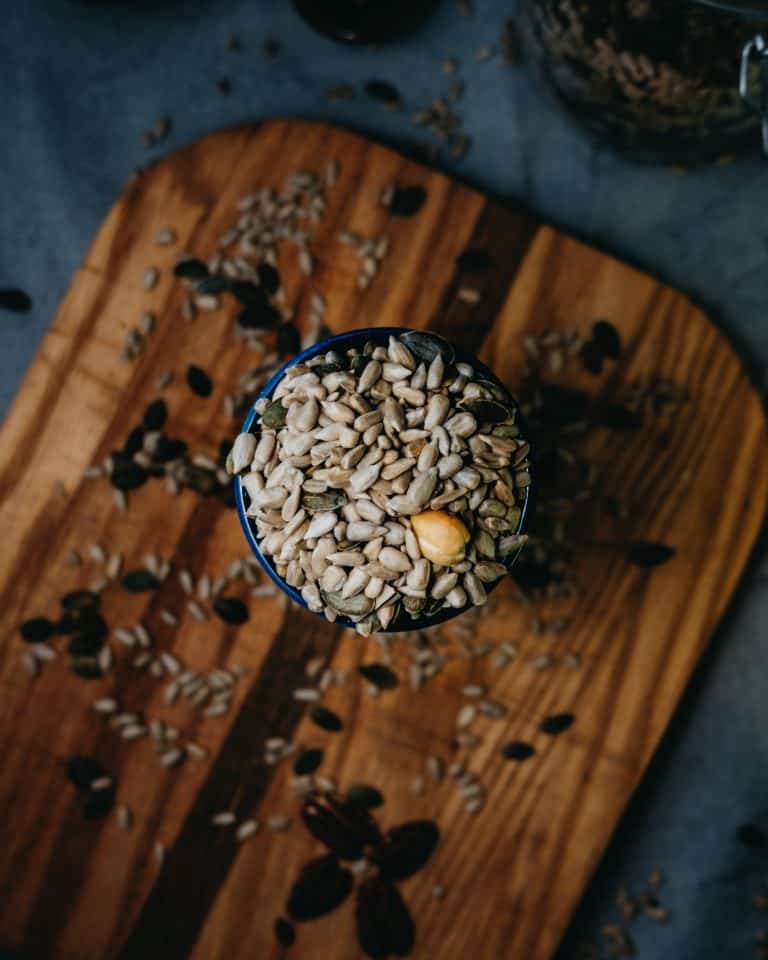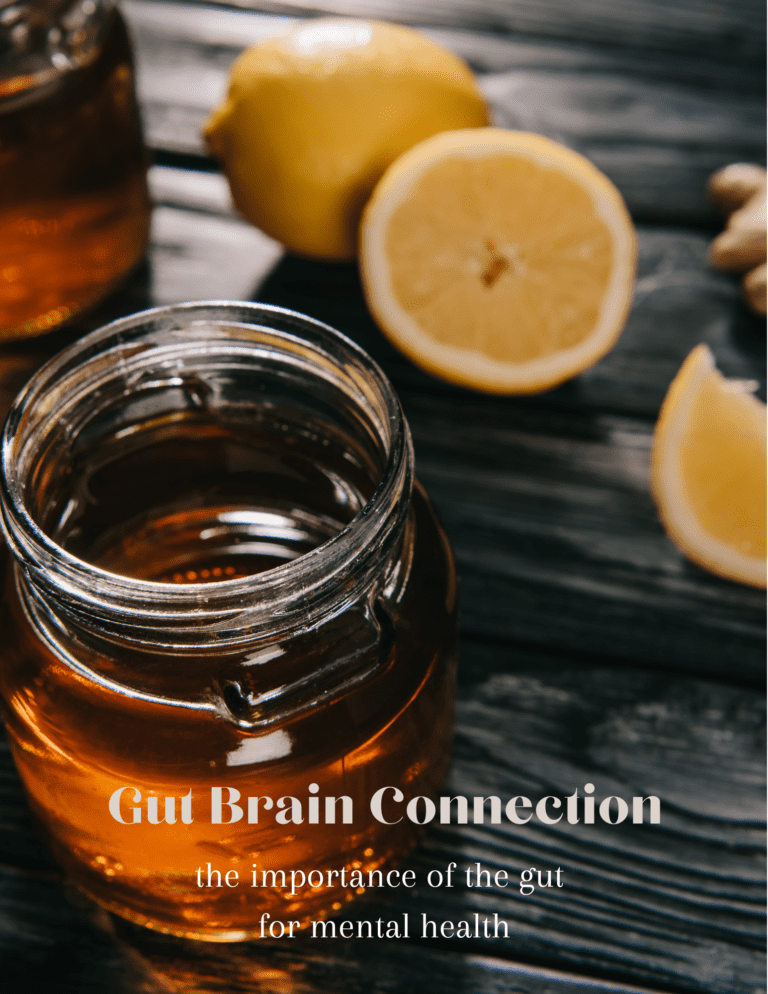Today I dive into the Gluten Free (GF) diet and look at if it’s really the better option for those looking to improve their microbiome or “healthier” in general. Gluten has been a highly debated subject in the field of nutrition. Many believe that by cutting out gluten, they are healing their gut along with their symptoms, eating fewer carbs, or making healthier choices, but that might not always be the case.
Is it good? Is it bad? Let’s find out.
To give a little personal background, about a year ago I kept getting an unexplained rash on my elbow. I had done some research and all I could find was that “gluten” was the catalyst. After completing an elimination diet and then re-introducing gluten, I didn’t have a reaction and, luckily, the rash never returned. It’s safe to say that gluten was never the problem. But why was gluten labeled as the bad guy for this particular skin condition? And why do so many people eliminate it from their diet when the internet says to?
Where can you find Gluten?
Gluten is found in wheat, barley, and rye. Honestly, it’s in a ton of stuff! Even things you wouldn’t normally consider, like shampoo and other products.
Where did the Gluten Free diet originate?
This diet has been around for a long time. Mainly used for those diagnosed with Celiac Disease. Individuals with Celiac Disease cannot process gluten because their bodies produce antibodies for gluten; therefore, they absolutely CANNOT have it in their diet without a reaction. It can wreak havoc in their gut. People with Celiac Disease typically can’t even eat food that has been processed in a non-gluten free kitchen. (Hi, pizza places that sell GF options…) Unless they have a separate work station, knives, oven, etc. then that gluten is getting all up in the GF pizza.
Gluten free gained popularity within the last 10 or so years and more gluten free products started hitting the market. Unfortunately, most people seemed to think that this gluten free diet was actually healthier or contained fewer carbohydrates, which actually isn’t the case. Gluten free is no healthier, it just lacks gluten… Gluten free cookies are still cookies!
In recent years there has also been a rise in gluten sensitivities. Non-Celiac Gluten Sensitive (NCGS) is the term for anyone who experiences a reaction to gluten without having Celiac antibodies in their system. There is no identified cause for it and, in some cases, gluten may be mistaken for other food products causing a disturbance. Things like fructans, lectins, or specific proteins in the body can all cause reactions in certain individuals (4).
Unfortunately, some people who think they have sensitivities to gluten, when they actually don’t, end up eliminating very key nutrients when they try these diets and, in turn, can welcome deficiencies and further complications.
It is recommended that you work with a Dietitian when trying to deal with sensitivities to figure it out appropriately together so you don’t do more harm than good.
Why is gluten considered “bad”?
Gluten has been a hot discussion in the gut health world because, to some, it is considered a source of inflammation in the gut. There is no denying that what we eat can change our gut microbiome diversity, but is gluten really to blame for a leaky gut?
Here’s what some research says about how eating a Gluten Free Diet (GFD) affected the gut microbiome:
One study found that eating a GFD actually decreased two important probiotics and increased the presence of E. Coli (1).Another study found that a GFD decreased healthy gut bacteria and increased bacteria that disrupts the gut and immune response (2).
On the contrary, two other studies I looked at showed a decrease in Veilonellaceae, which is a pro-inflammatory bacteria associated with Chron’s disease, Irritable Bowel Disease, and Colon Cancer (1,3).
With some clear conflicting evidence in terms of how the gut responds to a gluten free diet, it’s unclear whether or not a GFD is actually beneficial. Most studies that look at a GFD tended to focus on patients with Celiac Disease and NCGS, but not the general public. After reading Fiber Fueled, by Will Bulsiewicz, and Mind-Gut Connection, by Emeran Meyer, both had concluded that gluten may not be disrupting the gut like some think it is and that disturbances could be due to other culprits in the microbiome.
It is important to note that a large number of the population does not have Celiac Disease and/or gluten sensitivity. So, I am largely addressing the general population when I discuss gluten restriction. If you are having a reaction, upset in your stomach, or any other symptoms when you ingest gluten, then it’s important to meet with someone to target the reason why.
Unfortunately, nutrition is not a one-size-fits-all approach and each case is individual. Starting a low FODMAP diet or elimination diet is the best way to identify issues that may be related to Irritable Bowel Syndrome (IBS). It’s important to remember that any adverse side effects that you have related to your digestion could be classified as IBS.
When starting a low FODMAP diet, I highly recommend that you work with a Dietitian or someone who specializes in FODMAP’s since it can be very restrictive.
Why I stopped eating Gluten Free?
One of the main reasons I stopped is because I am not going to eliminate a food group if I don’t have to. I clearly identified that gluten was not my main issue. I recognized that stress was probably wreaking more havoc on my body than gluten ever had, which is likely what was aggravating my skin condition.
I think, as a society, we love to think there is always something to “fix”. I think people actually enjoy having a particular diet that they can identify with because it gives them a sense that they are working towards a certain goal.
But I think the ultimate goal should be to have freedom around food. Nutrition doesn’t have to be hard and there is no “right way” to eat. There is a very small subset of the entire population that needs to eliminate particular foods and if you are not having a reaction then you likely don’t need to be eliminating anything. Elimination can actually create more problems in the longer term.
I want to highlight some of the benefits of eating gluten products since it just gets such a bad name.
Some key reasons why I continue to eat gluten:
- Gluten is found in wheat products. Whole wheat is an excellent source of nutrients and fiber. Whole wheat is also notably beneficial for heart health, something that is very prevalent in my genetics.
- Some studies have shown that gluten elimination can unfavorably alter the gut microbiome. There is just not CLEAR sustained evidence to support a gluten free diet without some sensitivity.
- Risk vs. Benefit. To me, the benefits of eating whole grain bread and cereals far outweigh the possible risks of a gluten free diet.
- I can always change my mind. That is the beauty of free will. If I ever come to find that gluten free is superior for gut health, then I can always decide to start eating a GFD.
Next time you hear someone talking about a new diet or way of eating that is trending, think more about what large food groups that diet is eliminating and why.
Sources:



